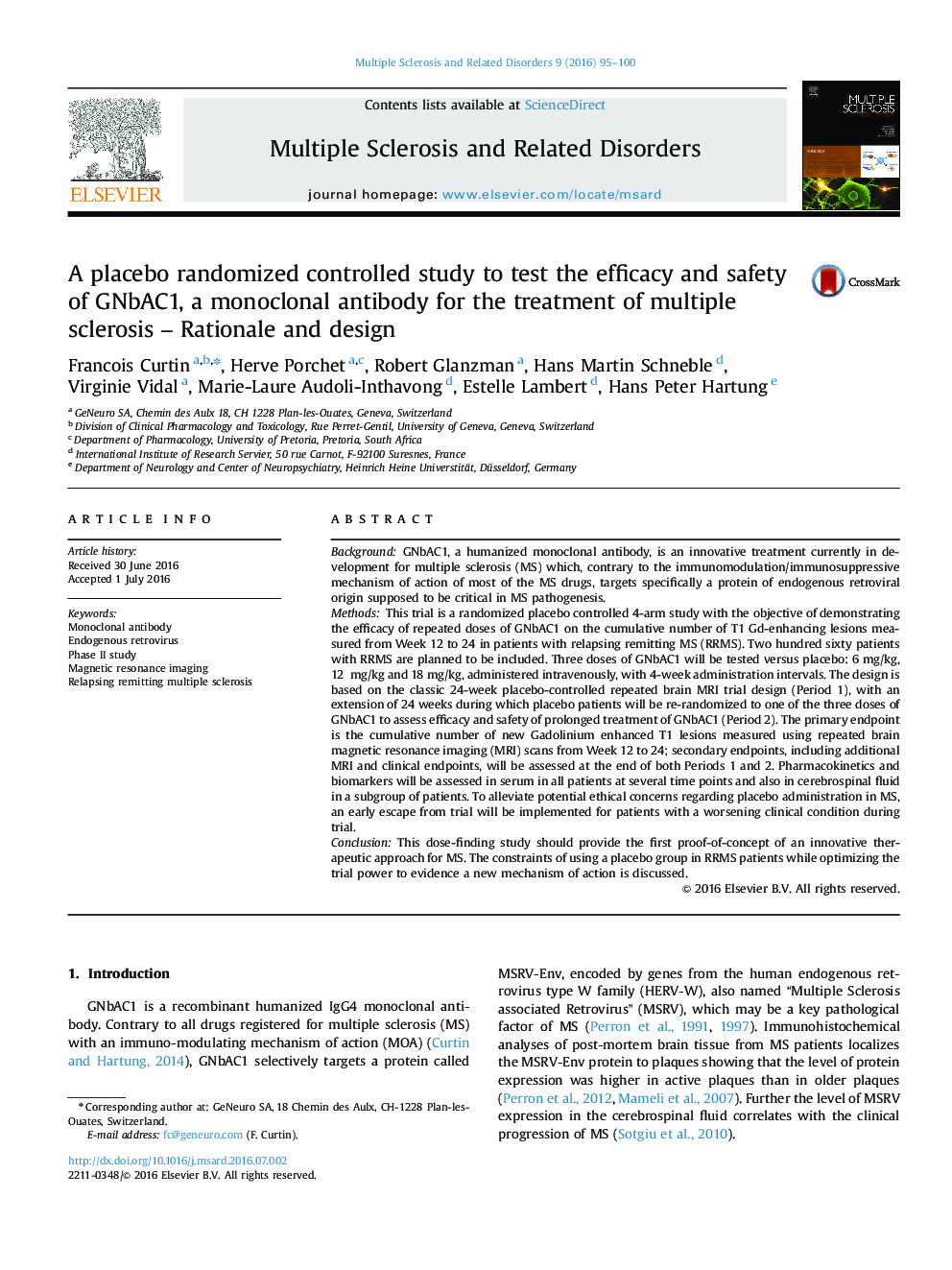| کد مقاله | کد نشریه | سال انتشار | مقاله انگلیسی | نسخه تمام متن |
|---|---|---|---|---|
| 5912091 | 1570208 | 2016 | 6 صفحه PDF | دانلود رایگان |

- GNbAC1 targets an endogenous retroviral protein involved in multiple sclerosis.
- This protocol describes the first proof-of-concept trial for GNbAC1 monoclonal antibody.
- Challenges to optimize study design while using a placebo in MS are discussed.
BackgroundGNbAC1, a humanized monoclonal antibody, is an innovative treatment currently in development for multiple sclerosis (MS) which, contrary to the immunomodulation/immunosuppressive mechanism of action of most of the MS drugs, targets specifically a protein of endogenous retroviral origin supposed to be critical in MS pathogenesis.MethodsThis trial is a randomized placebo controlled 4-arm study with the objective of demonstrating the efficacy of repeated doses of GNbAC1 on the cumulative number of T1 Gd-enhancing lesions measured from Week 12 to 24 in patients with relapsing remitting MS (RRMS). Two hundred sixty patients with RRMS are planned to be included. Three doses of GNbAC1 will be tested versus placebo: 6Â mg/kg, 12Â Â mg/kg and 18Â mg/kg, administered intravenously, with 4-week administration intervals. The design is based on the classic 24-week placebo-controlled repeated brain MRI trial design (Period 1), with an extension of 24 weeks during which placebo patients will be re-randomized to one of the three doses of GNbAC1 to assess efficacy and safety of prolonged treatment of GNbAC1 (Period 2). The primary endpoint is the cumulative number of new Gadolinium enhanced T1 lesions measured using repeated brain magnetic resonance imaging (MRI) scans from Week 12 to 24; secondary endpoints, including additional MRI and clinical endpoints, will be assessed at the end of both Periods 1 and 2. Pharmacokinetics and biomarkers will be assessed in serum in all patients at several time points and also in cerebrospinal fluid in a subgroup of patients. To alleviate potential ethical concerns regarding placebo administration in MS, an early escape from trial will be implemented for patients with a worsening clinical condition during trial.ConclusionThis dose-finding study should provide the first proof-of-concept of an innovative therapeutic approach for MS. The constraints of using a placebo group in RRMS patients while optimizing the trial power to evidence a new mechanism of action is discussed.
Journal: Multiple Sclerosis and Related Disorders - Volume 9, September 2016, Pages 95-100